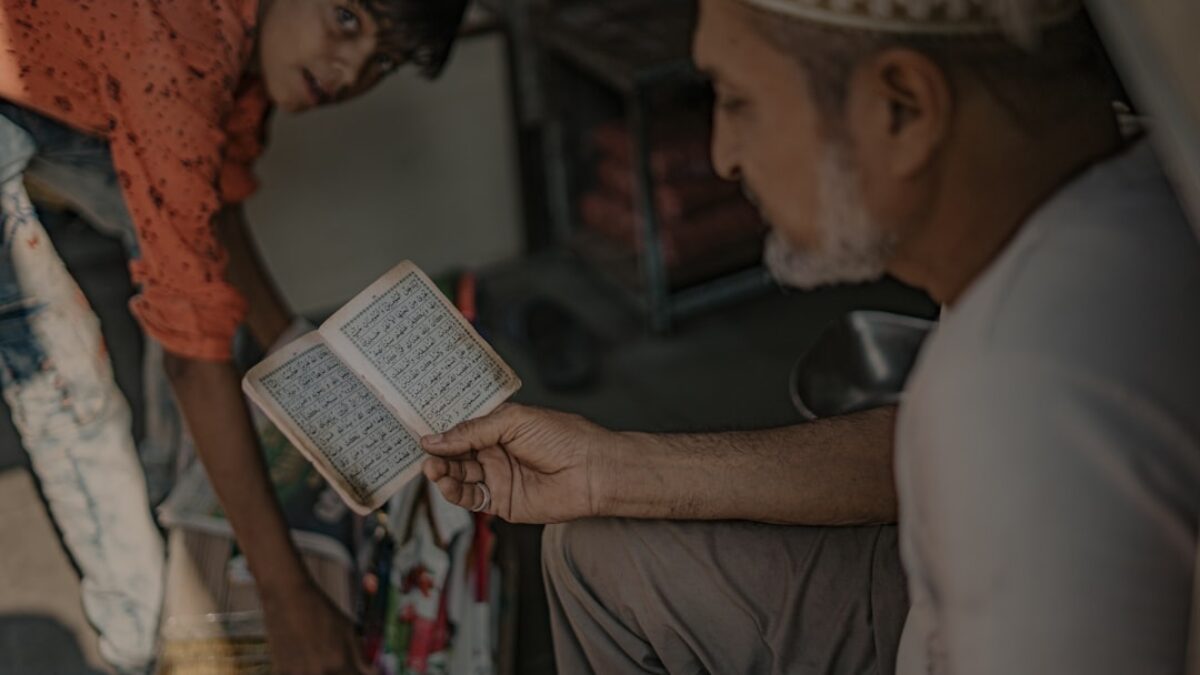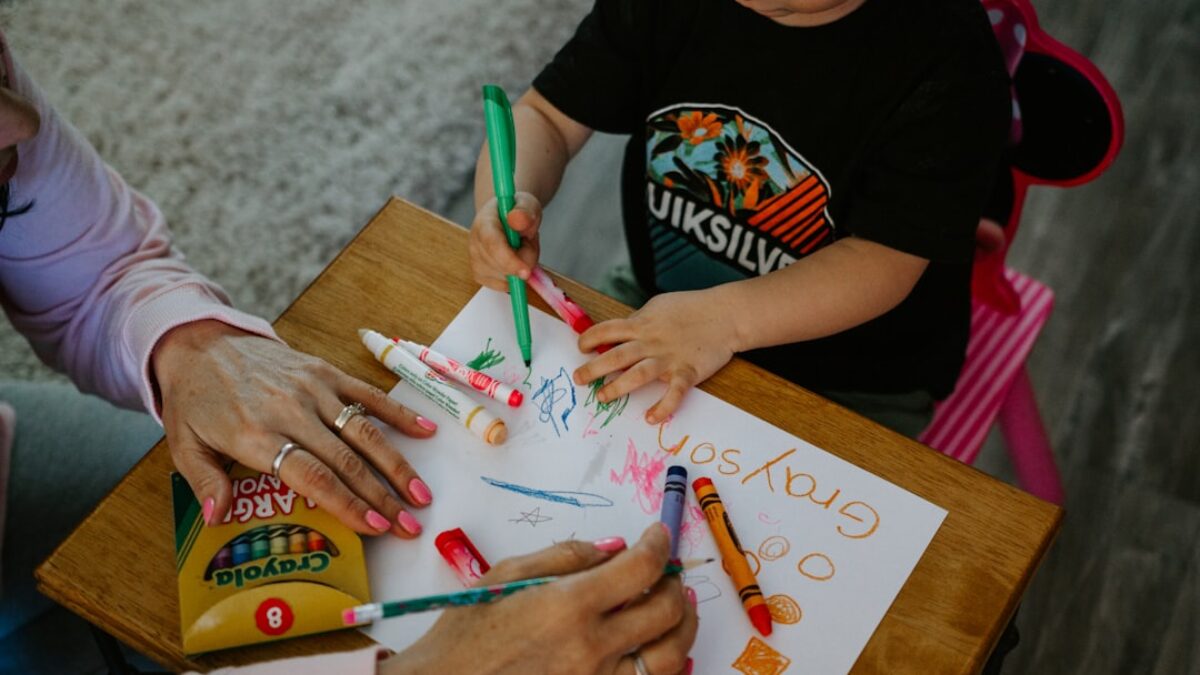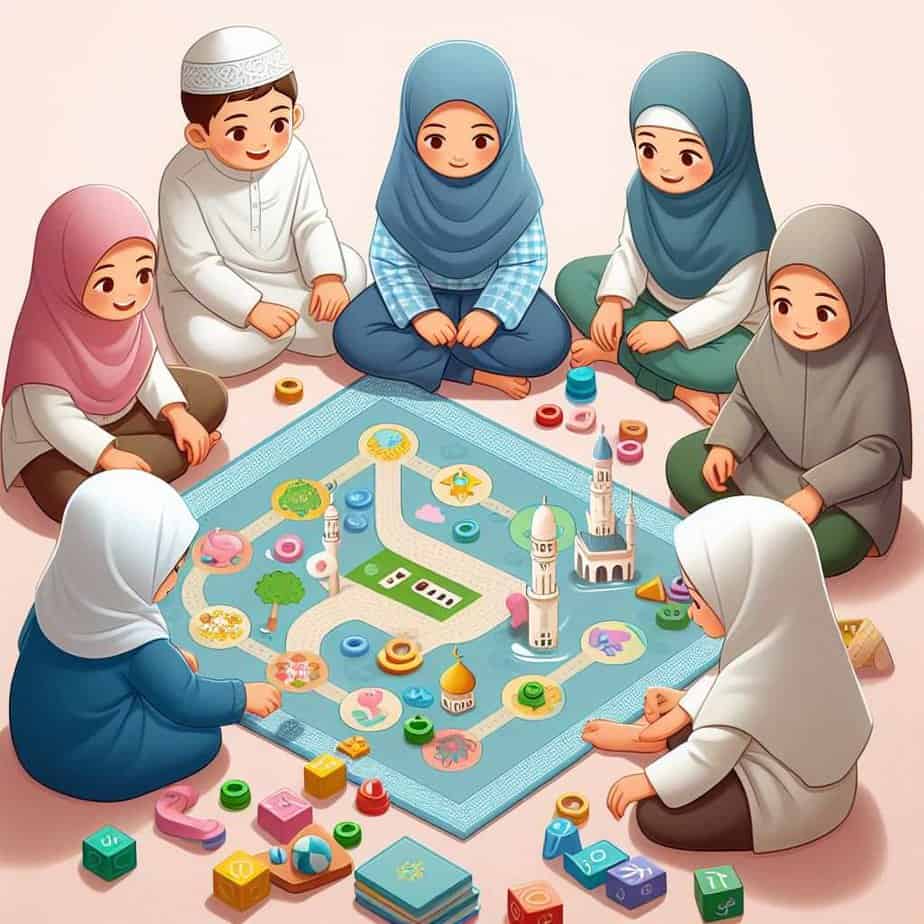Teaching Islam to children is one of the most rewarding—and sometimes most challenging—tasks Muslim parents, caregivers, and educators undertake. When lessons are delivered through play, storytelling, and everyday rituals, young hearts absorb the beauty of tawḥīd (oneness of Allah) and the spirit of the Sunnah without feeling burdened. The goal is not merely to transfer information, but to nurture lifelong love, awe, and commitment to Allah and His Messenger ﷺ.
Understanding the Child’s Cognitive & Spiritual Landscape
Before designing any lesson, we must remember that children are not miniature adults. Their cognitive abilities, attention spans, and emotional needs evolve in predictable stages. Understanding these stages helps us tailor content so it is developmentally appropriate and spiritually uplifting.
Ages 2-4: The Sensorimotor & Early Preoperational Stage
- Key trait: Learning through senses and movement.
- Islamic focus: Simple Arabic sounds (e.g., “Allah,” “Al-ḥamdu lillāh”), loving Allah through nature walks, gentle athārecitations at home.
Ages 5-7: The Preoperational Stage
- Key trait: Vivid imagination, love for stories, beginning of moral reasoning.
- Islamic focus: Qurʾanic stories with felt boards, role-playing the Prophet’s kindness to animals, crafting a “mini-mosque” from cardboard.
Ages 8-11: The Concrete Operational Stage
- Key trait: Logical thought about concrete events, interest in rules.
- Islamic focus: Memorizing short sūrahs with meaning, hands-on ṣalāh charts, community service projects like toy drives for orphans.
Ages 12-14: Early Formal Operations
- Key trait: Abstract thinking, identity formation, questioning.
- Islamic focus: Discussions on the wisdom behind Islamic rulings, youth-led ḥalaqāt, critical thinking about media stereotypes.
Key Components of an Effective Islamic Curriculum for Kids
A balanced program integrates ʿaqīdah (creed), ibādah (worship), akhlāq (morals), sīrah (biography of the Prophet ﷺ), and adab (etiquette)—all wrapped in joy. Below are the pillars and sample activities for each age band.
1. ʿAqīdah: Loving Allah & Knowing His Names
- Interactive Asmaaʾ al-Ḥusna wheel: Color-coded cardboard wheels where children spin to reveal one Name, then brainstorm where they see its effect (e.g., Ar-Razzāq in the breakfast on their table).
- “Creation Detective” walks: Spot Allah’s signs in clouds, insects, or seasons, recording findings in a “Signs Journal.”
2. Qurʾā: Recitation, Memorization, & Reflection
- 2-4 yrs: Nursery rhymes set to short āyāt (e.g., Qul Huwa Allāhu Aḥad).
- 5-7 yrs: Juzʾ ʿAmma bingo cards—matching Arabic words with pictures.
- 8-11 yrs: “Āyah of the Week” bulletin board—discuss vocabulary, story, and one action point.
- 12-14 yrs: Word-analysis sessions using color-coded root-word maps; produce short podcast reflections.
3. Ṣalāh: Prayer as Playful Connection
| Age Band | Fun Strategy | Skill Target |
|---|---|---|
| 2-4 yrs | Toy microphones that recite takbīr when pressed | Auditory recognition, gross motor imitation |
| 5-7 yrs | “Ṣalāh Train” floor stickers—step on each position | Sequence of prayer, body awareness |
| 8-11 yrs | DIY prayer rug design with acrylic paint, then gift to a friend | Ownership, community spirit |
| 12-14 yrs | Lead younger kids in a mock jamāʿah, receive feedback from mentor | Leadership, iḥsā(excellence) |
4. Sīrah: Living the Prophet’s Story
Transform the sīrah into a living narrative:
- Story baskets: Fill baskets with items like dates, a small blanket, toy camel—children retell the Ḥijrah using props.
- Comic strip projects: Older kids draw 4-panel comics of Badr or the Treaty of Ḥudaybiyyah, focusing on moral dilemmas.
- “What Would the Prophet ﷺ Do?” jar: Daily lunchbox notes with modern scenarios; kids guess and share answers at dinner.
5. Akhlāq & Adab: Manners Rooted in Faith
Use “manner missions”—weekly challenges such as:
- Saying a genuine compliment using Allah’s gifts (“Mā shāʾ Allah, your smile is a blessing”).
- Leaving a secret “kindness note” in a sibling’s room.
- Practicing patience while queuing by reciting dhikr softly.
Benefits and Importance
Nurturing Identity in a Complex World
Children bombarded by secular narratives need an internal compass. Early Islamic education inoculates them against identity confusion, providing a resilient Muslim identity grounded in divine love rather than cultural guilt.
Family Cohesion & Barakah
Shared rituals—from Maghrib adhācuddles to Friday night sīrah storytelling—create collective memory. Research in developmental psychology shows that family routines correlate with higher emotional security and academic success.
Long-Term Spiritual Health
A 2025 study by Yaqeen Institute found that Muslims who engaged in child-centered Islamic activities before age 10 were three times more likely to maintain daily ṣalāh into adulthood.
Practical Applications: Ready-to-Use Lesson Plans
Lesson 1: Allah’s Mercy in Rain (Ages 4-6)
- Hook: Play “rainstick” instrument; ask, “Who makes the rain?”
- Story: Read “Nabil and the Raindrop” (self-authored or from Islamic children’s library).
- Activity: Jar experiment—simulate cloud condensation with hot water and ice; chant “Ar-Raḥmā” together.
- Take-home: Printable coloring sheet “Ar-Raḥmāsends us rain.”
Lesson 2: The Five Pillars Parkour Course (Ages 7-9)
- Transform backyard or living room into obstacle course.
- Each “pillar station” has a task: recite shahādah on a mini-trampoline, give play coins as zakāh into a charity box, etc.
- Time each child; award “Pillar Champion” certificates.
Lesson 3: Debate Night—Women in Early Islam (Ages 12-14)
- Pre-assign teams: Khadījah (RA), ʿĀʾishah (RA), Nusaybah bint Kaʿb (RA).
- Provide short research packets.
- Hold a respectful debate on “Who best exemplified empowerment through faith?”
- Close with an adult-led reflection on modern misconceptions.
Ramadan & Eid Calendars
Create reusable felt calendars with 30 pockets. Each pocket contains:
- A small toy or date
- A “good-deed card” (e.g., “Call Grandma and recite Qurʾāto her”)
- A mini āyah sticker to memorize
Blending Islamic Teachings with Everyday Life
Morning Routine Integration
Example: While preparing breakfast, play the morning adhkār audio; children repeat after each phrase. This turns a mundane task into constant remembrance.
Car-Ride Qurʾā
Download short sūrah recitations. Each red light, pause the audio and ask: “What word did we just hear? What does it mean?”
Bedtime Wind-Down
- Recite Āyat al-Kursī together.
- Share one thing we thank Allah for today.
- Whisper the duʿāʾ for sleeping into each child’s ear.
Using Technology Wisely
Curated Apps & Platforms
- Age 3-6: “Ali and Sumaya” interactive prayer game.
- Age 7-11: “Quran Star” app—earn badges for recitation accuracy.
- Age 12+: “Yaqeen Youth” animated series tackling doubts and identity.
Digital Detox Agreements
Create a family covenant:
- No devices at meals.
- Friday “Tech-Free Night” dedicated to board games and sīrah storytelling.
- Monthly “earn screen time by completing good deed” chart.
Assessment & Encouragement Strategies
Faith Journals
Children decorate notebooks and log “Allah moments” daily—a sunset, a helpful friend, an answered duʿāʾ. Parents respond with stickers or short reflections.
Monthly “Spiritual Show-and-Tell”
Invite kids to bring a craft, recitation, or charity project. Celebrate progress with “Barakah Badges” they can pin on a cape during ṣalāh.
Common Pitfalls and How to Avoid Them
| Pitfall | Symptom | Solution |
|---|---|---|
| Fear-based teaching | Kids recite mechanically but avoid deeper questions | Shift to love-centered narratives; share stories of Allah’s mercy first |
| Information overload | Anxiety, tantrums before Qurʾāclass | Shorten sessions; use games; follow child’s interest |
| Cultural vs. religious confusion | Child rejects Islamic practice as “backwards” | Clarify with evidence from Qurʾā& Sunnah; invite culturally relevant role models |
Frequently Asked Questions
What if my child refuses to pray—should I force them?
Forcing can create resentment. Instead, model joy in ṣalāh, incorporate peer influence (praying with cousins), and use incremental wins—start with one ṣal
























Post Comment